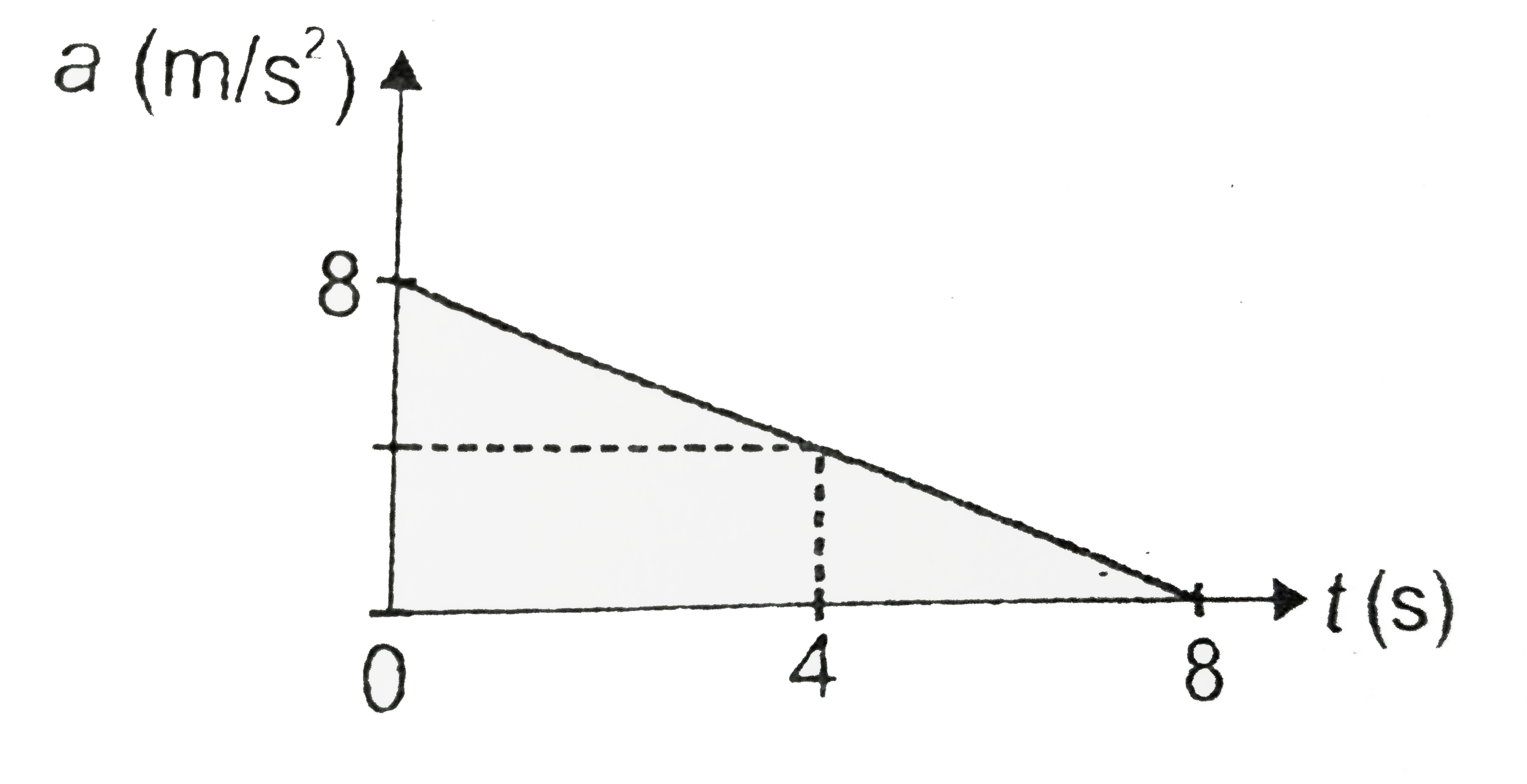The acceleration a of a particle in ms2 is give by a=18t2+36t+120. If the particle starts from rest, then velocity at end of 1 s is
122 m/s
140 m/s
144 m/s
120 m/s
The correct Answer is:C
To find the velocity of the particle at the end of 1 second, we need to integrate the given acceleration function with respect to time. The acceleration a is given by:
a=18t2+36t+120
Since acceleration a is the derivative of velocity v with respect to time t, we can write:
a=dvdt
Thus, we have:
dvdt=18t2+36t+120
To find the velocity, we will integrate both sides with respect to t:
∫dv=∫(18t2+36t+120)dt
Now, we perform the integration:
1. The integral of 18t2 is 6t3 (since 183=6).
2. The integral of 36t is 18t2 (since 362=18).
3. The integral of 120 is 120t.
Putting it all together, we have:
v=6t3+18t2+120t+C
Since the particle starts from rest, we know that the initial velocity v(0)=0. We can use this to find the constant C:
v(0)=6(0)3+18(0)2+120(0)+C=0⟹C=0
Thus, the velocity function simplifies to:
v=6t3+18t2+120t
Now, we need to find the velocity at t=1 second:
v(1)=6(1)3+18(1)2+120(1)
=6(1)+18(1)+120
=6+18+120
=144m/s
Therefore, the velocity of the particle at the end of 1 second is:
144m/s
2. The integral of 36t is 18t2 (since 362=18).
3. The integral of 120 is 120t.
=6(1)+18(1)+120
=6+18+120
=144m/s
Topper's Solved these Questions
Similar Questions
The acceleration a in ms−2 of a particle is given by a=3t2+2t+2, where t is the time. If the particle starts out with a velocity v=2ms−1 at t=0, then find the velocity at the end of 2s.
View SolutionThe acceleration a in ms−2 of a particle is given by a=3t2+2t+2, where t is the time. If the particle starts out with a velocity v=2ms−1 at t=0, then find the velocity at the end of 2s.
View Solution
Knowledge Check
If acceleration of a particle at any time is given by a=2t+5
Calculate the velocity after 5 s, if it starts from restA50ms−1B25ms−1C100ms−1D75ms−1Starting from rest, acceleration of a particle is a=2t(t−1). The velocity of the particle at t=5s is
AAt t=2s, the position of the particle is at x=9mBParticle acceleration at t=2s is 1m/s2CParticle acceleration is 1/2m/s2 through out the motionDParticle will never go in negative direction from it's starting position
Acceleration of a particle varies with time as a=12t2m/s2. If the particle starts its motion from rest,then its displacement in initial 2 seconds will be ?
View SolutionThe acceleration a in "m/s^(2)" of a particle is given by,a=3t^(2)+2t+2 where t is the time.If the particle starts out with a velocity u=2m/s at t=0then the velocity at the end of 2 second is
View SolutionThe acceleration-time graph of a particle moving along x-axis is shown in the figure. If the particle starts with velocity 3 m/s at t = 0, find the velocity of particle at t = 4 s.

View SolutionThe acceleration of a particle varies with time t as
a=t2+t+2
where t is in seconds.
The particle starts with an initial velocity v-3m/s at t=0. find the velocity of the particle at the end of 5s.
View SolutionThe acceleration of a particle is given by, a = t/6 at t = 0, velocity v = 2 m/s, displacement s= 2m. Find the velocity at t= 4 seconds,
View SolutionAcceleration of a particle is given by
a=3t2+2t+1
Where t is time . Find
(i) its velocity at time t assuming velocity to be 10 m/s at t = 0.
(ii) its position at time t assuming that the particle is at origin at t = 0.
(iii) What is the average speed of the particle in the duration t = 0 to t = 1s?
(iv) What is the average acceleration of the particle in the duration t = 0 to t = 1s?
View Solution
